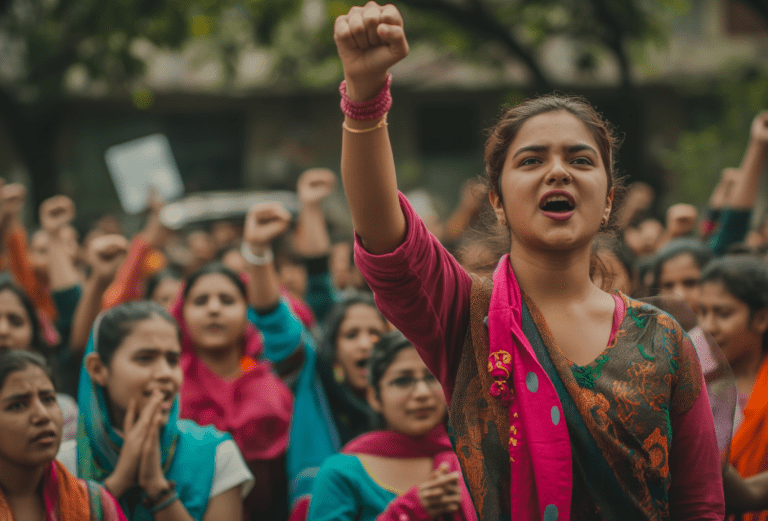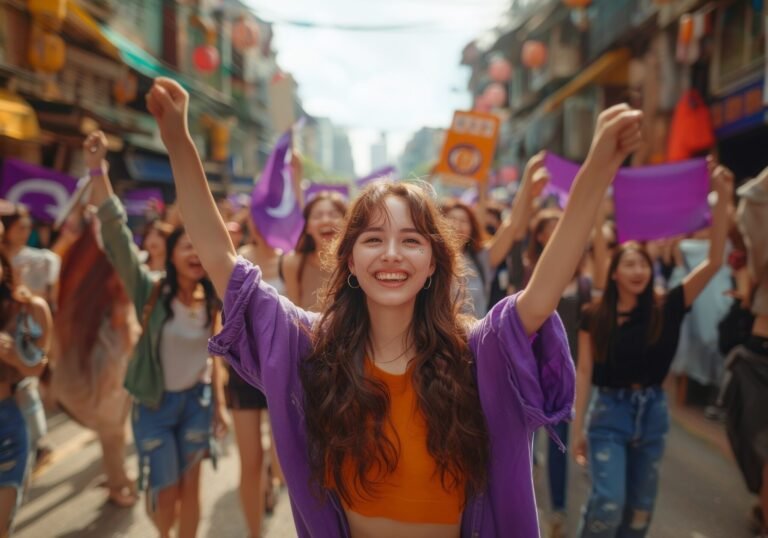Education has always been a key driver for societal change, fostering growth and development on both an individual and community level. From an NGO’s perspective, investing in education is about more than just building knowledge—it’s about empowering individuals, breaking the cycle of poverty, and building sustainable futures. At Raise Hands for Change, we believe education is a fundamental right and a pathway to achieving equality, especially for marginalized groups such as women and children.
1. Education: A Pathway to Empowerment
Education is transformative. It opens doors to opportunities, enables people to think critically, and provides the tools necessary for economic independence. When individuals, particularly women and girls, have access to quality education, they gain the confidence and skills required to make informed decisions about their health, family, and future.
For our NGO, providing education is not just about literacy or formal schooling; it’s about life skills, vocational training, and creating environments where learners can thrive. This holistic approach empowers them to tackle everyday challenges, build their self-esteem, and contribute positively to their communities.
2. Bridging the Education Gap in Marginalized Communities
One of the core missions of many NGOs, including ours, is to bridge the educational gap that exists between urban and rural communities. In underprivileged areas, schools are often under-resourced, teachers under-trained, and families lack awareness of the value of education.
Our programs aim to make education accessible by setting up community-based schools, training teachers, and providing learning materials. By working closely with local stakeholders, we help create an environment that promotes and sustains long-term educational growth.
3. Education for Women and Girls: Breaking the Cycle of Poverty
Education for women and girls is at the heart of our NGO’s mission. We understand that when girls are educated, they marry later, have fewer children, and earn higher incomes. This, in turn, leads to healthier families and stronger communities. Unfortunately, girls often face cultural and economic barriers that prevent them from accessing education.
Our initiatives are designed to address these challenges head-on. We provide scholarships, offer safe transportation to schools, and advocate against practices such as child marriage. By encouraging families to educate their daughters, we help dismantle harmful cultural norms and reduce gender inequality.
4. Vocational Training: Practical Skills for Sustainable Livelihoods
While formal education is crucial, it isn’t the only solution. For many, especially women, traditional academic pathways may not be accessible due to financial or societal barriers. Vocational training offers an alternative route to economic independence. Through our skill development programs, we teach practical skills such as sewing, agriculture, and small-scale entrepreneurship, allowing participants to become self-reliant.
These programs help individuals, particularly women, to start small businesses, contribute to household income, and improve their social standing within their communities.
5. Advocacy and Awareness: Mobilizing Communities for Change
In many regions, access to education is hindered by social, economic, and cultural factors. Addressing these systemic challenges requires more than just educational programs—it requires advocacy and community mobilization.
We at Raise Hands for Change engage in awareness campaigns that promote the value of education, particularly for girls and women. By working with local governments, parents, and community leaders, we strive to create a cultural shift where education is viewed as a basic right rather than a privilege.
6. Leveraging Technology for Education
In today’s digital age, technology has the potential to revolutionize education, especially in remote and underdeveloped areas. Our NGO leverages digital tools to deliver educational content to areas where schools may not exist. Through mobile apps, digital classrooms, and distance learning programs, we bring education directly to the students, ensuring that no one is left behind.
7. Conclusion: Education as a Catalyst for Sustainable Change
At Raise Hands for Change, we see education as the foundation upon which sustainable change is built. By investing in education, we are not only equipping individuals with knowledge but also empowering entire communities to break the cycle of poverty and thrive. Education, particularly for women and marginalized groups, is a powerful tool that can reshape societies, create equal opportunities, and ensure a brighter, more equitable future for all.
Education is not just about learning; it is about empowerment, transformation, and hope. By prioritizing education, NGOs like ours can help turn these hopes into reality for countless individuals and communities around the world.





